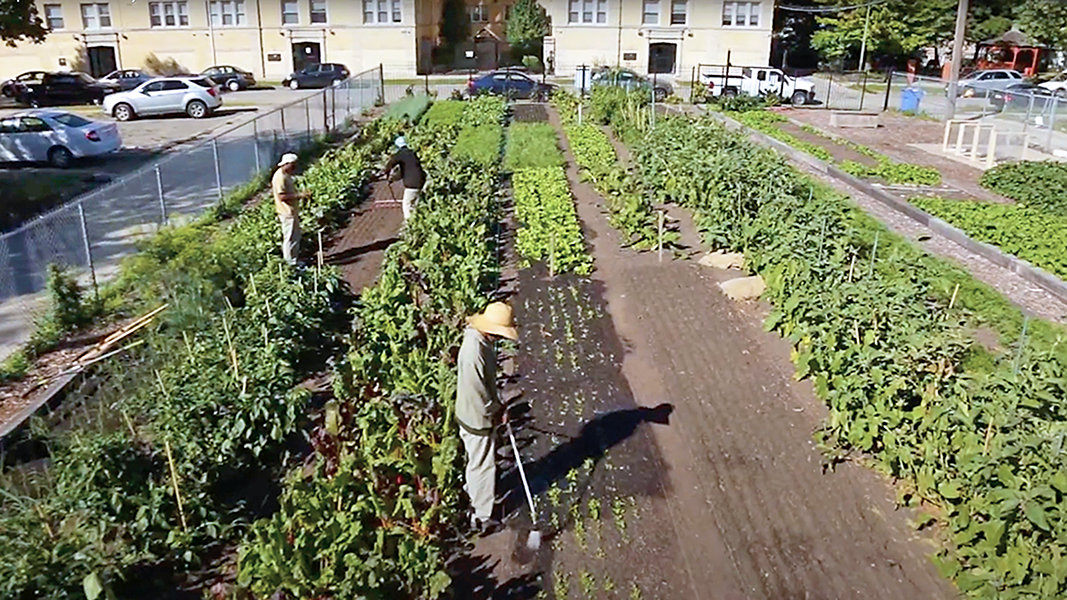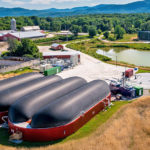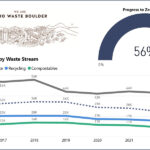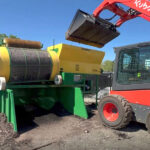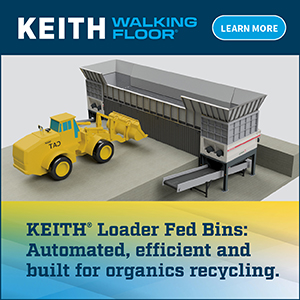Top: Composting pilots are on NeighborSpace community garden sites in Chicago. Photo courtesy of NeighborSpace
Chicago Mayor Lori Lightfoot and the Department of Street and Sanitation (DSS), in partnership with NeighborSpace, are establishing six small-scale community garden composting sites located throughout Chicago to offer community garden participants and nearby neighbors an opportunity to compost some of their food scraps from home. Funded partially through a grant from the Natural Resources Defense Council (NRDC) as part of its Food Matters Initiative, and through Mayor Lightfoot’s Chicago Recovery Plan (CRP), the pilot locations are on NeighborSpace-protected community garden sites and will accept certain organic waste materials from area residents. “Chicago has been strategic about studying and outlining plans to reduce greenhouse gas emissions and equitably increase recycling rates in all communities, as outlined in the 2021 Chicago Waste Strategy and the 2022 Chicago Climate Action Plan,” says Lightfoot. “These compost sites represent the first step in our plans to both reduce the overall waste that ends up in our landfills and reuse waste as resources that support healthy trees and vegetation.”
A three-bin composting system will be provided at each location in which garden trimmings, fruit and vegetable scraps, eggshells, coffee grounds, and tea bags can be composted onsite. Produce stickers, meat, bones, dairy products, and cooking oils will not be accepted. The finished compost will be available for use in the community gardens to nourish the soil. “With the community composting pilot, community gardeners will be able to work together, just as they do, growing food and flowers, to divert scraps from our landfills and right back into the garden community,” notes Ben Helphand, Executive Director for NeighborSpace. The organization will be working with the DePaul Steans Center (DSS) on an ongoing evaluation of the pilot. DSS will review the processes and results and set a goal to increase the number of gardens with active composting operations able to accept kitchen scraps from the community.


